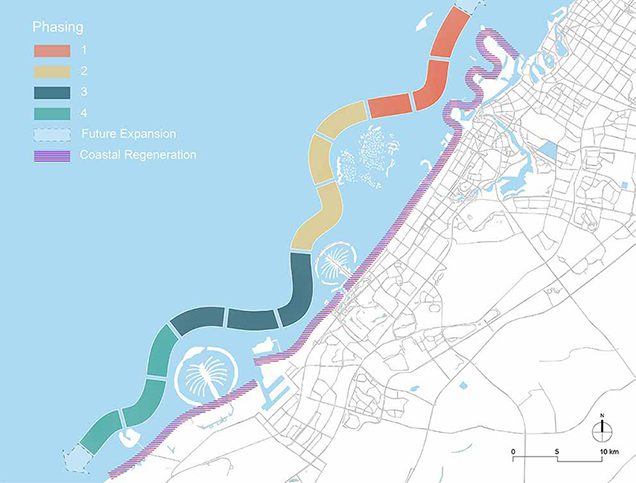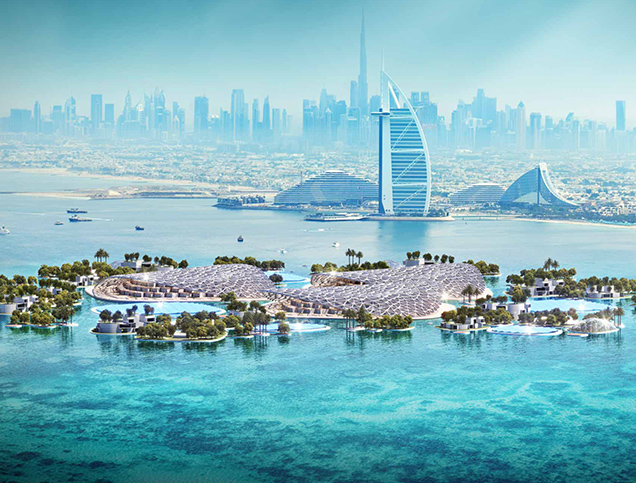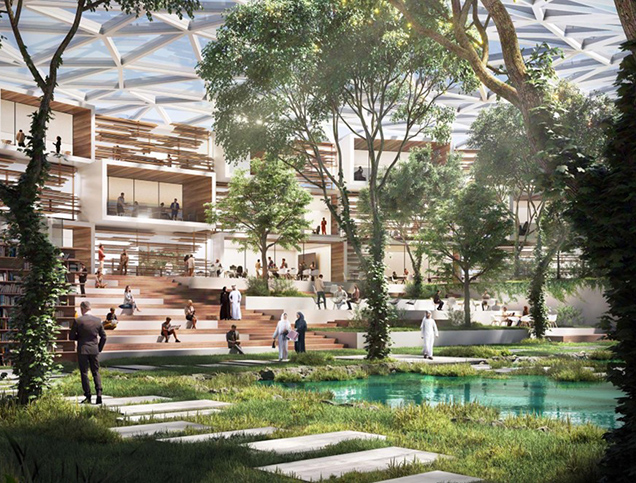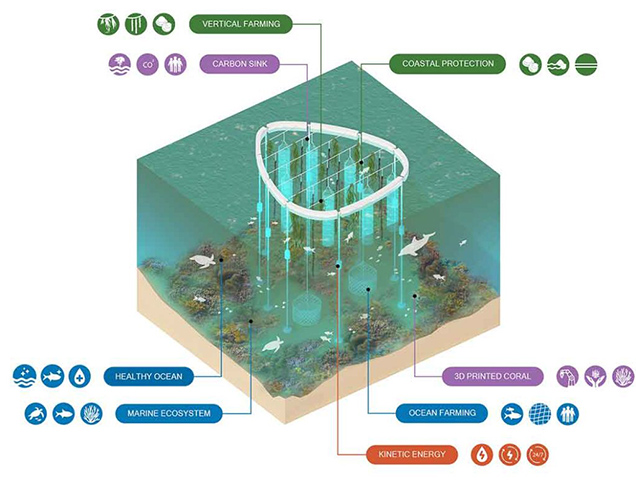
Close

Approach Words: Environment Preservation, Sustainability, Urban Resilience
Public Policy Instruments: Organization, Physical Intervention, Planning, Regulatory
The Dubai Reefs project is a large-scale marine reef development initiative to create the world’s largest artificial reef, promoting marine restoration, coastal protection and sustainable ocean living.1 It encompasses deploying artificial reef modules across 600 square kilometers of Dubai’s waters to enhance marine biodiversity while reducing carbon emissions, supporting sustainable fishing, and boosting food security.2
This is part of Dubai’s broader strategy to achieve climate neutrality by 2050 aligns with the Dubai Economic Agenda D33,3 i which seeks to position Dubai as a leading sustainable city. The project also aligns with the UAE National Framework for Sustainable Fisheries 2019-2030,ii launched by the Ministry of Climate Change and Environment (MoCCAE) and the Environment Agency – Abu Dhabi (EAD), aimed at increasing the country’s food stock while reducing the impact of overfishing.4

Title: The Dubai Reefs Master Plan and Phases.
Source: Click Here

Title: 3D Rendering of the Dubai Reefs.
Source: Click Here

Title: The Marine Institute in Dubai Reefs.
Source: Click Here

Title: Regenerative Farming Floating Structure.
Source: Click Here
The project’s foundation is the urgent need to mitigate the effects of climate change, focusing on reducing CO2 emissions and protecting reefs, which are among the most diverse ecosystems on our planet.5 As such, the plan will house 1 billion corals and 100 million mangrove trees,6 to capture over seven million tons of carbon annually7 while generating over 30,000 green jobs.8 iii
The plan also comprises developing residential, hospitality, retail, educational & research facilities powered entirely by renewable energy, forming a “sustainable floating community for marine research, regeneration and eco-tourism”. At its heart, the Marine Institute serves as a hub for marine biologists, scientists, and researchers. The institute aims to accelerate marine science and conservation capacity in Dubai, focusing on global ocean cleanup initiatives and innovative technologies like 3D printing for reef construction. Meanwhile, envisioned residential and hospitality facilities include floating eco-resorts, eco-lodges, and a marine conversation center.9 As such, this project intends to increase employment, provide income earning opportunities, and offer emotional and therapeutic benefits to travelers, engaging them in coral reef restoration and marine life education.
Regenerative Ocean Farming is another key feature of the project, envisioned as a blueprint for climate-friendly food production. Through this technique, Dubai Reefs seeks to become a blueprint for sustainable ocean living while addressing climate change impacts.10
Launched in 2023 under the directives of the Crown Prince of Dubai Hamdan bin Mohammed, the Dubai Reef project is led by the Dubai Department of Economy and Tourism (DET) and the Regulatory Committee on Fishing of Living Aquatic Resources in Dubai, in cooperation with Dubai Chambers, the Ports, Customs and Free Zone Corporation (PCFC), and Nakheel Real Estate Developer.11 A Dubai-based developer of sustainable cities (URB) designed the project plans and floating features.12 The launch of the project coincided with the U.N. Framework Convention on Climate Change (COP28) at Expo City Dubai.13
The project is set to unfold in four phases according to four segments of the Dubai coastline, depicted in the attached map. Implementation aims to start in 2024 and is targeted for completion within four years.14
Project Link
https://urb.ae/projects/dubaireefs/
Endnotes
References